SUMMARY
This is AI generated summarization, which may have errors. For context, always refer to the full article.
While researching my last post about how Facebook is ruining our lives, one of the most fascinating things I found was that people tend to project a different, more stylized and successful image of themselves online.
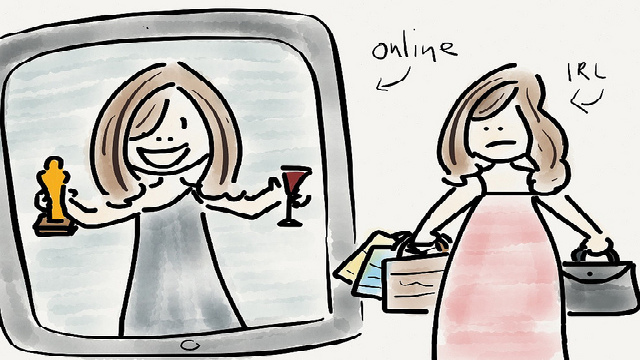
This is true, right? I notice that even in myself. This is probably why I go to ridiculously great lengths to obliterate any unflattering pictures of myself. I mean, come on, I even tried to enforce a Facebook picture posting/tagging procedure on my friends.
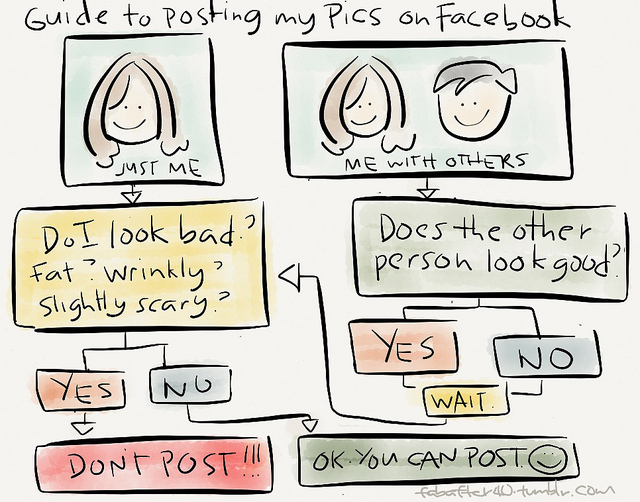
Yes, I really posted that and expected my friends and family to follow it. They mostly just laughed and ignored me.
I don’t really know why we do this. I suppose part of it is that we don’t want to be a drag by being all “woe is me” whenever we have problems…
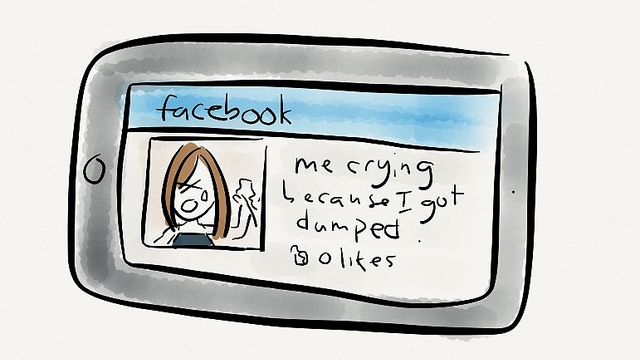
…especially since our problems are really nobody’s business anyway.
But I’ve noticed that with some people, the crafting of the successful Facebook persona goes far beyond just not wanting to sully people’s feeds with the overly personal or the unimpressively mundane. So much so that I sometimes think they should just call it ‘Bragbook’ or ‘Fakebook,’ because really, no one’s life or family is that perfect.
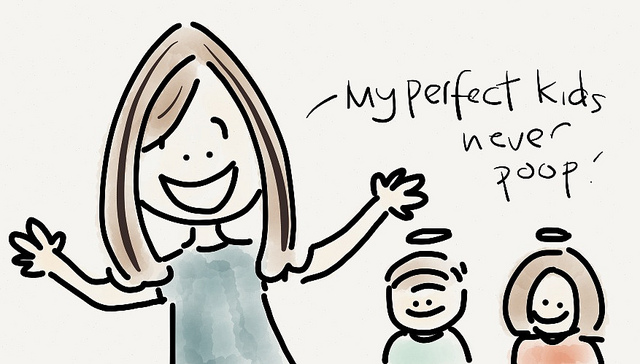
I already discussed in the other post how this leads to Facebook envy in other people, but I did wonder… does the dichotomy between our online selves and our real-life selves have any worrisome effects on us?
According to clinical psychologist Craig Malkin, it does:
“The self is, to some extent, a story we tell,” Malkin explained. “When people are choosing to leave out the normal chinks in human armor, the normal vulnerabilities, how can they again not feel like there’s something wrong with that?”
The psychologist said concealing the less desirable aspects of our lives over and over again “forecloses intimacy,” meaning it can condition and prevent us from nurturing truly intimate connections with others. But what about our relationship to ourselves?
“It affects it deeply,” Malkin answered, “because part of the way we develop a strong sense of self and identity is by being known and known by others — appreciated. They see who we are, and they value who we are, including our flaws.”
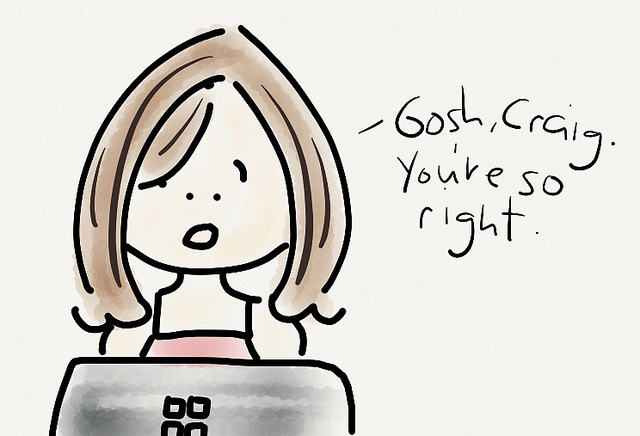
I think that behind every facade (whether online or in real life) is a need to be liked and admired. That’s normal, and understandable. But if people only know and like one side of you – the successful, happy side – I don’t think you’ll ever really be satisfied. You’ll always wonder if they’d still like you if they knew everything.
At the end of the day, we all want to be loved for who we are — in our entirety, not just the positive bits. For better or for worse, and all that. But for this to happen, we need to quit hiding behind the mask of what we think makes us acceptable or admirable.
Just be YOU. Quirks, flaws, crazy mood swings and all. There’s beauty in uniqueness. In fact, sometimes it’s precisely the imperfections that make something beautiful in the first place. And here’s a little secret… the less perfect you make yourself out to be, the more likable you actually are. – Rappler.com
This piece first appeared in Chinie’s blog “FabAfter40” and is being republished here in Rappler.
Add a comment
How does this make you feel?
There are no comments yet. Add your comment to start the conversation.